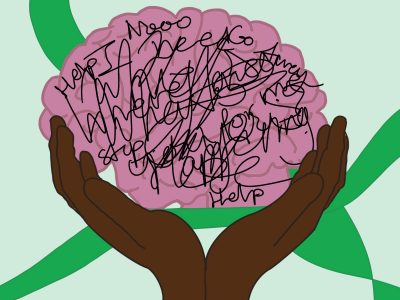Mental health awareness has grown substantially over the years, with a wide range of media aiming to frame mental health issues in ways the general public can understand. In Hollywood, many celebrities have come forward to share their personal mental health challenges, furthering the notion that suffering in silence is a problem of the past. This newfound positive perception of mental health presents an interesting question.
How far should we extend sympathy towards individuals with mental illness who’ve garnered negative public attention?
Pop singer Britney Spears had a series of public breakdowns beginning in 2006 and ending in October 2008. After this, Spears was placed in a conservatorship and removed from the public eye. A conservatorship is when a court grants a person, usually a close relative, the ability to control the personal and financial affairs of an individual who is deemed unable to do so themselves. For nearly a decade, Spears didn’t — or it now seems wasn’t allowed to — publicly speak about the situation.
In April 2019, a statement from a whistleblower that the singer was being held against her will ignited the #FreeBritney movement throughout social media. By August 2021, largely with the help of public support, the conservatorship was removed.
When Spears’ infamous breakdown in 2007 was heavily publicized, we saw the singer in numerous situations that painted her in a bad light. Various times Spears was spotted endangering her children, and in one incident, she made the rash decision to shave her head.
Tabloids didn’t pull any punches. One article from 2008 was literally titled, “Bald and Broken: Inside Britney’s Shaved Head.” Another article from the New York Times detailed the financial benefits of Spears’ crisis.
Yet, 11 years later the public rallied behind her with the #FreeBritney movement — understanding that her mental health issues accompanied by excessive media coverage were largely responsible for her past actions. We also know now that she has taken the necessary measures to heal.

Over the past few months rapper Kanye West has been drawing a lot of attention for comments aimed at Pete Davidson. These comments have started since Davidson began dating West’s ex-wife, Kim Kardashian. Since West said he has bipolar disorder, the internet has been split on how to best address his often blunt and irregular social media posts.
Most recently on Feb. 13, the rapper posted a series of images with corresponding captions on Instagram including publicly addressing Billie Eilish and Kid Cudi, various memes and pictures illustrating his rivalry with Davidson and an image of himself to clarify his account was not hacked.
Many have interpreted his most recent posts as emotional abuse against Kardashian. One Twitter user stated, “tbh i don’t think the kim kanye stuff is funny or entertaining i think it’s scary and triggering for anyone who’s been in a stalking/abusive situation before.” This isn’t the first time West’s actions have been deemed as harmful.
In 2018, for example, West made the claim that slavery was a “choice,” an especially disrespectful sentiment toward those in the African American community. Given that the public is aware of West’s bipolar disorder, the extent one should sympathize comes into question whenever these statements are made. The fact that West doesn’t take medication makes it all the more likely that his disorder is to blame for the off-color comments and suggests we should approach the situation with more understanding.
Mental illness isn’t pretty. It is also incredibly complicated in the unique way it affects each person. Two individuals who share a similar diagnosis can’t be expected to act the same. In the case of West, however, the topic becomes even more nuanced.
I’d imagine that West, a proponent of wholly free speech and freedom for himself, wouldn’t like the idea that his bipolar disorder is controlling him. He doesn’t like when others speak for him, and has stated he feels he should be allowed to post as many times a day as he wants, because Instagram allows him to directly contact the public without media outlets intercepting and distorting the message.
Does that mean West should be held fully accountable for his words? How do we factor in his diagnosis when attempting to do so?
I went into this article with the intention of arguing that those with mental health issues who’ve received negative public attention deserve sympathy, and I still fully believe that. Mental health should be treated as seriously as one’s physical health. Operating under a mental disorder can be debilitating and can certainly lead one to make decisions that don’t align with their true intentions.
But, once that sympathy is lended, what happens next?
In the end, perhaps the best course of action is always to factor in context. All that can be done is to receive West’s statements with the understanding that he does in fact have bipolar disorder, but, to an extent, is also responsible for what he does. Empathy is essential, but accountability is as well.























































































































